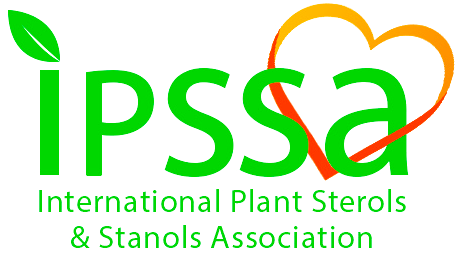Do plant sterols and stanols reduce liver inflammation?
Foods and food supplements with added plant sterols and stanols are known for their LDL-cholesterol lowering effect (Gylling et al, 2014). Several meta-analyses have summarised the evidence showing that serum LDL-cholesterol concentrations can be lowered by 7-12.5% with intakes of 1.5 – 3 g/d of plant sterols/stanols (Ras et al, 2014).
Emerging research nowadays shows that plant sterols/stanols may also exert health benefits beyond cholesterol-lowering. Researchers from the University of Maastricht have recently found in preclinical studies using an accepted animal model that plant sterols and stanols reduced inflammation in the liver and the development of non-alcoholic steatohepatitis (Plat et al, 2014).
Non-alcoholic fatty liver disease (NAFLD) is caused by a build-up of fat in the liver and can progress into irreversible non-alcoholic steatohepatitis (NASH), a condition where next to fat build-up also inflammation and damage to the liver occurs. Due to rise of obesity and diabetes the prevalence of NAFLD and NASH is worldwide increasing, making it a major health concern.
The Maastricht researchers hypothesize that plant sterols/stanols may also lower liver inflammation in humans who have already established hepatic inflammation or are at risk due to being obese, having diabetes or high blood cholesterol. A challenge is to develop proven intervention opportunities to reduce or prevent NASH and furthermore to identify individuals who are at risk of liver disease by using a validated tool of non-invasive biomarkers.
Therefore, the Maastricht researchers, supported by the three IPSSA member companies BASF, Raisio and Unilever, applied for a research grant from the Dutch Ministry of Economic Affairs via the “Top Sector Life Sciences & Health” to further study whether liver inflammation can be lowered by plant sterols and stanols in humans including patients with NASH.
The now granted research project aims to identify a tool of non-invasive biomarkers that could be ultimately used as a diagnostic tool in clinical practice. Further, the effects of plant sterols and stanols on liver inflammation will be investigated in placebo-controlled human intervention studies, of which the first study will start within the coming months.
This research project will deliver important insights into dietary ways to control liver disease and especially NASH development. IPSSA companies support this research as it may provide substantiated evidence for health benefits of plant sterols/stanols beyond cholesterol lowering and may hence offer opportunities for further promote health by addressing an emerging global health risk such as liver inflammation.
References
Gylling H, Plat J, Turley S, Ginsberg HN, Ellegard L, Jessup W, et al. Plant sterols and plant stanols in the management of dyslipidaemia and prevention of cardiovascular disease. Atherosclerosis. 2014;232(2):346-60.
Ras RT, Geleijnse JM, Trautwein EA. LDL-cholesterol-lowering effect of plant sterols and stanols across different dose ranges: a meta-analysis of randomised controlled studies. Br J Nutr. 2014;112(2):214-9.
Plat J, Hendrikx T, Bieghs V, Jeurissen ML, Walenbergh SM, van Gorp PJ, De Smet E, Konings M, Vreugdenhil ACE, Guichot YD, Rensen SS, Buurman WA, Greve JW, Lütjohann D, Mensink RP, Shiri-Sverdlov R. Protective role of plant sterol and stanol esters in liver inflammation: insights from mice and humans. PLoS One 2014; 9 (10): e110758.

